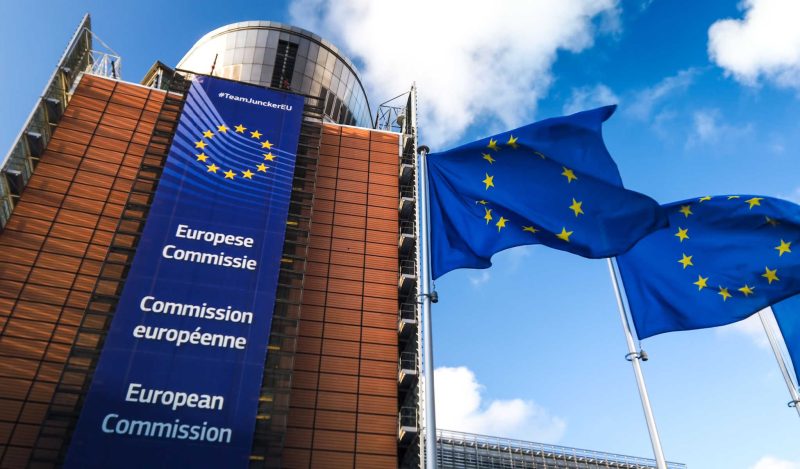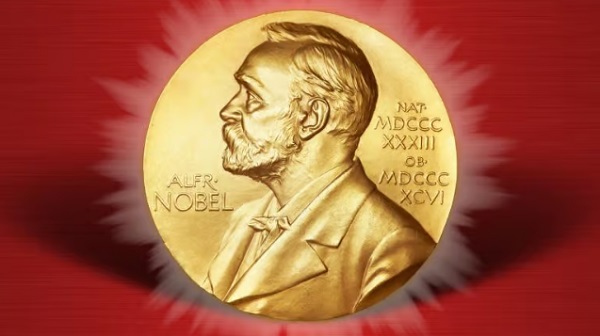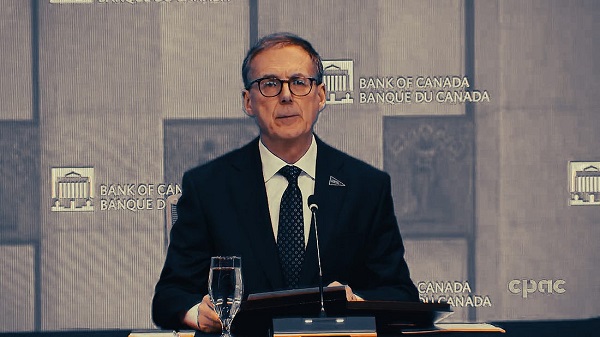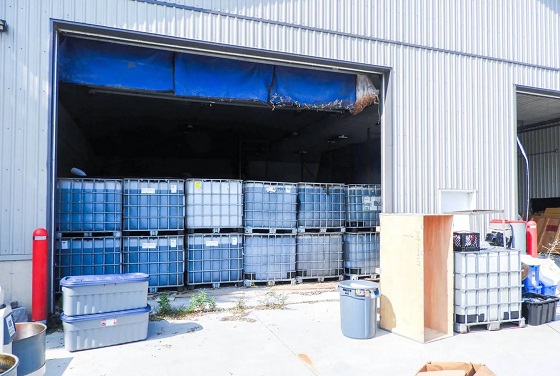Brownstone Institute
The EU Files: What Elon Musk Is Not Telling You About Twitter Censorship

From the Brownstone Institute
BY
The “Twitter Files” have exposed numerous contacts between US government officials and Twitter and requests for suppression of accounts or content: notably, in the context of alleged Covid-19 “disinformation.” But what they have not revealed is that there was in fact a formal government program explicitly dedicated to “Fighting Covid-19 Disinformation” in which Twitter, as well as all other major social media platforms, were enrolled.
As part of this program, the platforms were submitting monthly (later bi-monthly) reports to the government on their censorship efforts. Below is a picture of an archive of the “Fighting Covid-19 Disinformation” reports.

I did not have to hack into the intranet of the US government to find them. All I had to do was look on the public website of the European Commission. For the government in question is not, after all, the US government, but the European Commission.
The reports are available here. Lest there be any doubt that what is at issue in “Fighting Covid-19 Disinformation” is censorship – but how could there be any doubt? – the Commission website specifies that the reports include information on “demoted and removed content containing false and/or misleading information likely to cause physical harm or impair public health policies” (author’s emphasis).
Indeed, the Twitter reports, in particular, include data not only on removed content, but also on outright account suspensions. It is thanks precisely to the data that Twitter was gathering to satisfy the EU’s expectations that we know that 11,230 accounts were suspended under Twitter’s recently discontinued Covid-19 Misleading Information Policy. The below chart, for instance, is taken from Twitter’s last (March-April 2022) report to the EU. Note that the data is “global,” i.e. Twitter was reporting back to the European Commission on its censorship of content and accounts all over the world, not just in the EU.

To be clear then: It is strictly impossible that Twitter has not had contact with EU officials about censoring Covid-19 dissent, because the EU had a program specifically dedicated to the latter and Twitter was part of it. Furthermore, it is strictly impossible that Twitter is not continuing to have contact with EU officials about censoring online content and speech more generally.
This is because the EU’s “Fighting Covid-19 Disinformation” program was launched within the framework of its more general so-called Code of Practice on Disinformation. Under the Code, Twitter and other online platforms and search engines have assumed commitments to combat – i.e. suppress – what the European Commission deems to be “misinformation” or “disinformation.”
In June of last year, a “strengthened” Code of Practice on Disinformation was adopted, which created formalized reporting requirements for Code signatories like Twitter. Other major signatories of the Code include Google/YouTube, Meta/Facebook, Microsoft – which is notably the owner of LinkedIn – and TikTok.
Furthermore, the strengthened Code also created a “permanent task force” on disinformation, in which all code signatories are required to participate and which is chaired by none other than the European Commission itself. The “task force” also includes representatives of the EU’s foreign service. (For more details, see Section IX of the Code, titled “Permanent Task-Force.”)
And if this were not enough, in September of last year, the EU opened a “digital embassy” in San Francisco, in order precisely to be close to Twitter and other leading American tech companies. For the moment, the embassy reportedly shares office space with the Irish consulate: meaning, per Google maps, that it is around a 10-minute drive from Twitter headquarters.

So, it is strictly impossible that Twitter has not had and is not continuing to have contact – indeed extensive and regular contact – with EU officials about censoring content and accounts that the European Commission deems “mis-” or “disinformation.” But we have heard absolutely nothing about this in the “Twitter Files.”
Why? The answer is: because EU censorship really is government censorship, i.e. censorship that Twitter is required to carry out on pain of sanction. This is the difference between the EU censorship and what Elon Musk himself has denounced as “US government censorship.” The latter has amounted to nudges and requests, but was never obligatory and could never be obligatory, thanks to the First Amendment and the fact that there has never been any enforcement mechanism. Any law creating such an enforcement mechanism would be obviously unconstitutional. Hence, Twitter could always simply say no.
But so long as it wants to remain on the EU market, Twitter cannot say no to the demands of the European Commission. As discussed in my previous article here, the enforcement mechanism that renders the Code of Practice obligatory is the EU’s Digital Services Act (DSA). The DSA gives the European Commission power to impose fines of up to 6% percent of global turnover on platforms that it finds to be in violation of the Code: n.b. global turnover, not just turnover on the EU market!
The Commission has not been shy about reminding Twitter and the other tech companies of this threat, thus posting the below tweet last June on the very day that the “strengthened” Code of Practice was announced.

This was before the DSA had even been adopted by the European Parliament! But the DSA has been the sword of Damocles hanging over the heads of Twitter and the other online platforms for the last two years, and it is now law. Once designated a “very large online platform” by the Commission – which is inevitable in its case – Twitter will have 4 months to demonstrate compliance, as the below “DSA Timeline” makes clear.

Moreover, the power to apply financial sanction is not the only extraordinary enforcement power that the DSA gives the Commission. The Commission is also given the power to conduct warrantless inspections of company premises, sealing the premises for the duration of the inspection, and gaining access to whatever “books or records” it pleases. (See Article 69 of the DSA here.) Such inspections, which have been previously used in the context of EU competition law, are quaintly known in the literature as “dawn raids.” (See here, for example.)
This is why Elon Musk and the “Twitter Files” are so verbose about alleged “US government censorship” and so willing to “out” the private communications of US government officials, but have remained suitably mum about EU censorship demands and have not outed the private communications of any EU officials or representatives. Elon Musk is being held hostage by the European Union, and no hostage in his or her right mind is going to do anything to irritate the hostage-takers.
Far from any sign of defiance of the Code and the DSA, what we get from Elon Musk is repeated pledges of fealty: like the below tweet that he posted after meeting with EU Internal Market Commissioner Thierry Breton in January. (For an earlier such pledge in the form of a joint video message with Breton, see here.)

And if Musk should ever have any doubts about what he needs to do to satisfy the EU’s requirements, help is always close at hand – indeed a mere 10 minutes aways. For the EU’s “digital ambassador” to Silicon Valley, Gerard de Graaf, is one of the authors of the DSA.
But if Elon Musk is so fearful about crossing the EU, then why has he restored so many Covid-19 dissident accounts? Wasn’t that an act of defiance of the EU and notably of its “Fighting Covid-19 Disinformation” program?
Well, no, it was not.
Firstly, it should be recalled that Musk had originally promised a “general amnesty” of all suspended accounts. As discussed in my earlier article here, this quickly drew a stern and public rebuke from none other than Thierry Breton, and Musk failed to follow through. Instead, in accordance with Breton’s demands, there has been a case-by-case restoration of selected accounts, which has recently slowed down to a trickle.
@OpenVaet, whose own Twitter account remains suspended, has been maintaining a partial inventory of suspended Twitter accounts. As of this writing, only 99 of the 215 accounts in the sample, or roughly 46% percent, have been restored. (See @OpenVaet’s spreadsheet of still banned and restored accounts here.) Assuming the sample is representative, this would mean that over 6,000 accounts in all are still suspended.
And this is to say nothing of the more insidious form of censorship that is “visibility filtering” or “shadow-banning.” Per the motto “Freedom of speech is not freedom of reach,” Elon Musk has never denied that Twitter would continue to engage in the latter. Many of the returning Covid-19 dissidents have noticed a curious lack of engagement, leading them to wonder if their accounts are not in fact still subjected to unannounced special measures.
But, secondly, and more to the point, have another look at the archive of the “Fighting Covid-19 Disinformation” reports shown above. That is the completearchive. The March-April 2022 reports are the final set of reports. Last June, as noted here, the European Commission discontinued the program, folding the reporting on Covid-19 “disinformation” into the more general reporting requirements established under the “strengthened” Code of Practice on Disinformation.
By this time, most of the most onerous Covid-19 measures in the EU, including “vaccine passports,” had already been ended, and most of the remainder have been gradually rolled back since. Elon Musk thus allowed (some) Covid-19 dissent back onto Twitter when, at least in the EU, there was hardly any public policy to dissent from anymore.
But the EU’s censorship regime as such is still very much in place, and censorship has by no means come to end on Twitter. Thus, on the very night of the Brazilian elections on October 30, Twitter was already censoring local reports of electoral fraud. The famous “misleading” warning labels that had once been used to quarantine reports of Covid-19 vaccine harm now made a reappearance, insisting that according to unnamed “experts,” Brazil’s elections were “safe and secure.” (For examples, see my thread here.)
Whether electoral integrity/fraud in countries of interest, the war in Ukraine or the “next pandemic” for which the EU is already reserving mRNA “vaccine” capacity, you may rest assured that the EU will not lack new subjects of “disinformation” requiring censorship and that Elon Musk and Twitter will oblige.
Whether this censorship takes the form of outright suspensions and content removals or content “demotion” and account “visibility filtering” is a secondary matter. The European Commission will be able to work out such details with Twitter and the other platforms.
Indeed, the DSA further requires the platforms to grant the Commission access to their back offices, including, as Thierry Breton triumphantly notes in a blog post here, “the ‘black box’ of algorithms that are at the heart of platforms’ systems.” As noted on the Commission website, the Commission is even setting up a European Centre for Algorithmic Transparency, in order to be able to better fulfill its “supervisory” role in this regard.
Needless to say, such “transparency” does not extend to mere users such as you or me. For us, the algorithmic functioning of the platforms will remain a “black box.” But the Commission will be able to know everything about it and to demand modifications to ensure compliance with the EU’s requirements.
Brownstone Institute
The Doctor Will Kill You Now

From the Brownstone Institute
Way back in the B.C. era (Before Covid), I taught Medical Humanities and Bioethics at an American medical school. One of my older colleagues – I’ll call him Dr. Quinlan – was a prominent member of the faculty and a nationally recognized proponent of physician-assisted suicide.
Dr. Quinlan was a very nice man. He was soft-spoken, friendly, and intelligent. He had originally become involved in the subject of physician-assisted suicide by accident, while trying to help a patient near the end of her life who was suffering terribly.
That particular clinical case, which Dr. Quinlan wrote up and published in a major medical journal, launched a second career of sorts for him, as he became a leading figure in the physician-assisted suicide movement. In fact, he was lead plaintiff in a challenge of New York’s then-prohibition against physician-assisted suicide.
The case eventually went all the way to the US Supreme Court, which added to his fame. As it happened, SCOTUS ruled 9-0 against him, definitively establishing that there is no “right to die” enshrined in the Constitution, and affirming that the state has a compelling interest to protect the vulnerable.
SCOTUS’s unanimous decision against Dr. Quinlan meant that his side had somehow pulled off the impressive feat of uniting Antonin Scalia, Ruth Bader Ginsberg, and all points in between against their cause. (I never quite saw how that added to his luster, but such is the Academy.)
At any rate, I once had a conversation with Dr. Quinlan about physician-assisted suicide. I told him that I opposed it ever becoming legal. I recall he calmly, pleasantly asked me why I felt that way.
First, I acknowledged that his formative case must have been very tough, and allowed that maybe, just maybe, he had done right in that exceptionally difficult situation. But as the legal saying goes, hard cases make bad law.
Second, as a clinical physician, I felt strongly that no patient should ever see their doctor and have to wonder if he was coming to help keep them alive or to kill them.
Finally, perhaps most importantly, there’s this thing called the slippery slope.
As I recall, he replied that he couldn’t imagine the slippery slope becoming a problem in a matter so profound as causing a patient’s death.
Well, maybe not with you personally, Dr. Quinlan, I thought. I said no more.
But having done my residency at a major liver transplant center in Boston, I had had more than enough experience with the rather slapdash ethics of the organ transplantation world. The opaque shuffling of patients up and down the transplant list, the endless and rather macabre scrounging for donors, and the nebulous, vaguely sinister concept of brain death had all unsettled me.
Prior to residency, I had attended medical school in Canada. In those days, the McGill University Faculty of Medicine was still almost Victorian in its ways: an old-school, stiff-upper-lip, Workaholics-Anonymous-chapter-house sort of place. The ethic was hard work, personal accountability for mistakes, and above all primum non nocere – first, do no harm.
Fast forward to today’s soft-core totalitarian state of Canada, the land of debanking and convicting peaceful protesters, persecuting honest physicians for speaking obvious truth, fining people $25,000 for hiking on their own property, and spitefully seeking to slaughter harmless animals precisely because they may hold unique medical and scientific value.
To all those offenses against liberty, morality, and basic decency, we must add Canada’s aggressive policy of legalizing, and, in fact, encouraging industrial-scale physician-assisted suicide. Under Canada’s Medical Assistance In Dying (MAiD) program, which has been in place only since 2016, physician-assisted suicide now accounts for a terrifying 4.7 percent of all deaths in Canada.
MAiD will be permitted for patients suffering from mental illness in Canada in 2027, putting it on par with the Netherlands, Belgium, and Switzerland.
To its credit, and unlike the Netherlands and Belgium, Canada does not allow minors to access MAiD. Not yet.
However, patients scheduled to be terminated via MAiD in Canada are actively recruited to have their organs harvested. In fact, MAiD accounts for 6 percent of all deceased organ donors in Canada.
In summary, in Canada, in less than 10 years, physician-assisted suicide has gone from illegal to both an epidemic cause of death and a highly successful organ-harvesting source for the organ transplantation industry.
Physician-assisted suicide has not slid down the slippery slope in Canada. It has thrown itself off the face of El Capitan.
And now, at long last, physician-assisted suicide may be coming to New York. It has passed the House and Senate, and just awaits the Governor’s signature. It seems that the 9-0 Supreme Court shellacking back in the day was just a bump in the road. The long march through the institutions, indeed.
For a brief period in Western history, roughly from the introduction of antibiotics until Covid, hospitals ceased to be a place one entered fully expecting to die. It appears that era is coming to an end.
Covid demonstrated that Western allopathic medicine has a dark, sadistic, anti-human side – fueled by 20th-century scientism and 21st-century technocratic globalism – to which it is increasingly turning. Physician-assisted suicide is a growing part of this death cult transformation. It should be fought at every step.
I have not seen Dr. Quinlan in years. I do not know how he might feel about my slippery slope argument today.
I still believe I was correct.
Brownstone Institute
Trump Covets the Nobel Peace Prize

From the Brownstone Institute
By
Many news outlets reported the announcement of the Nobel Peace Prize on Friday by saying President Donald Trump had missed out (Washington Post, Yahoo, Hindustan Times, Huffington Post), not won (USA Today), fallen short (AP News), lost (Time), etc. There is even a meme doing the rounds about ‘Trump Wine.’ ‘Made from sour grapes,’ the label explains, ‘This is a full bodied and bitter vintage guaranteed to leave a nasty taste in your mouth for years.’

For the record, the prize was awarded to María Corina Machado for her courageous and sustained opposition to Venezuela’s ruling regime. Trump called to congratulate her. Given his own attacks on the Venezuelan president, his anger will be partly mollified, and he could even back her with practical support. He nonetheless attacked the prize committee, and the White House assailed it for putting politics before peace.
He could be in serious contention next year. If his Gaza peace plan is implemented and holds until next October, he should get it. That he is unlikely to do so is more a reflection on the award and less on Trump.
So He Won the Nobel Peace Prize. Meh!
Alfred Nobel’s will stipulates the prize should be awarded to the person who has contributed the most to promote ‘fraternity between nations…abolition or reduction of standing armies and…holding and promotion of peace congresses.’ Over the decades, this has expanded progressively to embrace human rights, political dissent, environmentalism, race, gender, and other social justice causes.
On these grounds, I would have thought the Covid resistance should have been a winner. The emphasis has shifted from outcomes and actual work to advocacy. In honouring President Barack Obama in 2009, the Nobel committee embarrassed itself, patronised him, and demeaned the prize. His biggest accomplishment was the choice of his predecessor as president: the prize was a one-finger send-off to President George W. Bush.
There have been other strange laureates, including those prone to wage war (Henry Kissinger, 1973), tainted through association with terrorism (Yasser Arafat, 1994), and contributions to fields beyond peace, such as planting millions of trees. Some laureates were subsequently discovered to have embellished their record, and others proved to be flawed champions of human rights who had won them the treasured accolade.
Conversely, Mahatma Gandhi did not get the prize, not for his contributions to the theory and practice of non-violence, nor for his role in toppling the British Raj as the curtain raiser to worldwide decolonisation. The sad reality is how little practical difference the prize has made to the causes it espoused. They bring baubles and honour to the laureates, but the prize has lost much of its lustre as far as results go.
Trump Was Not a Serious Contender
The nomination processes start in September and nominations close on 31 January. The five-member Norwegian Nobel committee scrutinises the list of candidates and whittles it down between February and October. The prize is announced on or close to 10 October, the date Alfred Nobel died, and the award ceremony is held in Oslo in early December.
The calendar rules out a newly elected president in his first year, with the risible exception of Obama. The period under review was 2024. Trump’s claims to have ended seven wars and boasts of ‘nobody’s ever done that’ are not taken seriously beyond the narrow circle of fervent devotees, sycophantic courtiers, and supplicant foreign leaders eager to ingratiate themselves with over-the-top flattery.
Trump Could Be in Serious Contention Next Year
Trump’s 20-point Gaza peace plan falls into three conceptual-cum-chronological parts: today, tomorrow, and the day after. At the time of writing, in a hinge moment in the two-year war, Israel has implemented a ceasefire in Gaza, Hamas has agreed to release Israeli hostages on 13-14 October, and Israel will release around 2,000 Palestinian prisoners (today’s agenda). So why are the ‘Ceasefire Now!’ mobs not out on the streets celebrating joyously instead of looking morose and discombobulated? Perhaps they’ve been robbed of the meaning of life?
The second part (tomorrow) requires Hamas demilitarisation, surrender, amnesty, no role in Gaza’s future governance, resumption of aid deliveries, Israeli military pullbacks, a temporary international stabilisation force, and a technocratic transitional administration. The third part, the agenda for the day after, calls for the deradicalisation of Gaza, its reconstruction and development, an international Peace Board to oversee implementation of the plan, governance reforms of the Palestinian Authority, and, over the horizon, Palestinian statehood.
There are too many potential pitfalls to rest easy on the prospects for success. Will Hamas commit military and political suicide? How can the call for democracy in Gaza and the West Bank be reconciled with Hamas as the most popular group among Palestinians? Can Israel’s fractious governing coalition survive?
Both Hamas and Israel have a long record of agreeing to demands under pressure but sabotaging their implementation at points of vulnerability. The broad Arab support could weaken as difficulties arise. The presence of the internationally toxic Tony Blair on the Peace Board could derail the project. Hamas has reportedly called on all factions to reject Blair’s involvement. Hamas official Basem Naim, while thanking Trump for his positive role in the peace deal, explained that ‘Palestinians, Arabs and Muslims and maybe a lot [of] people around the world still remember his [Blair’s] role in causing the killing of thousands or millions of innocent civilians in Afghanistan and Iraq.’
It would be a stupendous achievement for all the complicated moving parts to come together in stable equilibrium. What cannot and should not be denied is the breathtaking diplomatic coup already achieved. Only Trump could have pulled this off.
The very traits that are so offputting in one context helped him to get here: narcissism; bullying and impatience; bull in a china shop style of diplomacy; indifference to what others think; dislike of wars and love of real estate development; bottomless faith in his own vision, negotiating skills, and ability to read others; personal relationships with key players in the region; and credibility as both the ultimate guarantor of Israel’s security and preparedness to use force if obstructed. Israelis trust him; Hamas and Iran fear him.
The combined Israeli-US attacks to degrade Iran’s nuclear capability underlined the credibility of threats of force against recalcitrant opponents. Unilateral Israeli strikes on Hamas leaders in Qatar highlighted to uninvolved Arabs the very real dangers of continued escalation amidst the grim Israeli determination to rid themselves of Hamas once and for all.
Trump Is Likely to Be Overlooked
Russia has sometimes been the object of the Nobel Peace Prize. The mischievous President Vladimir Putin has suggested Trump may be too good for the prize. Trump’s disdain for and hostility to international institutions and assaults on the pillars of the liberal international order would have rubbed Norwegians, among the world’s strongest supporters of rules-based international governance, net zero, and foreign aid, the wrong way.
Brash and public lobbying for the prize, like calling the Norwegian prime minister, is counterproductive. The committee is fiercely independent. Nominees are advised against making the nomination public, let alone orchestrating an advocacy campaign. Yet, one laureate is believed to have mobilised his entire government for quiet lobbying behind the scenes, and another to have bad-mouthed a leading rival to friendly journalists.
Most crucially, given that Scandinavian character traits tip towards the opposite end of the scale, it’s hard to see the committee overlooking Trump’s loud flaws, vanity, braggadocio, and lack of grace and humility. Trump supporters discount his character traits and take his policies and results seriously. Haters cannot get over the flaws to seriously evaluate policies and outcomes. No prizes for guessing which group the Nobel committee is likely to belong to. As is currently fashionable to say when cancelling someone, Trump’s values do not align with those of the committee and the ideals of the prize.
-

 National18 hours ago
National18 hours agoCanadian MPs order ethics investigation into Mark Carney’s corporate interests
-

 Business2 days ago
Business2 days agoCanada has given $109 million to Communist China for ‘sustainable development’ since 2015
-

 Banks23 hours ago
Banks23 hours agoBank of Canada Cuts Rates to 2.25%, Warns of Structural Economic Damage
-

 Business24 hours ago
Business24 hours agoFord’s Liquor War Trades Economic Freedom For Political Theatre
-

 Opinion2 days ago
Opinion2 days agoBritish Columbians protest Trump while Eby brings their province to its knees
-

 International2 days ago
International2 days agoStrongest hurricane in 174 years makes landfall in Jamaica
-

 Alberta13 hours ago
Alberta13 hours agoNobel Prize nods to Alberta innovation in carbon capture
-

 Business1 day ago
Business1 day agoBill Gates walks away from the climate cult








